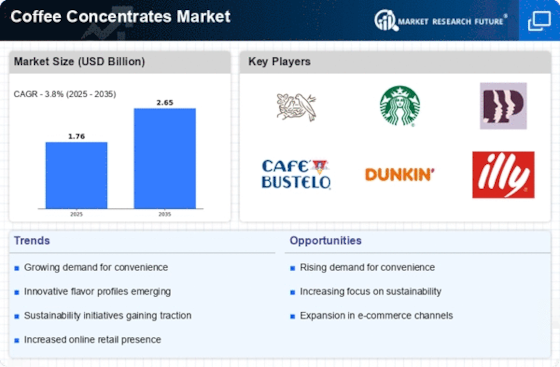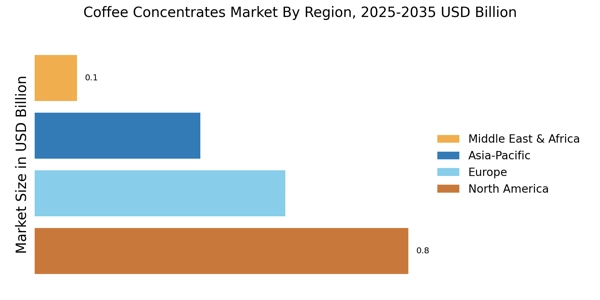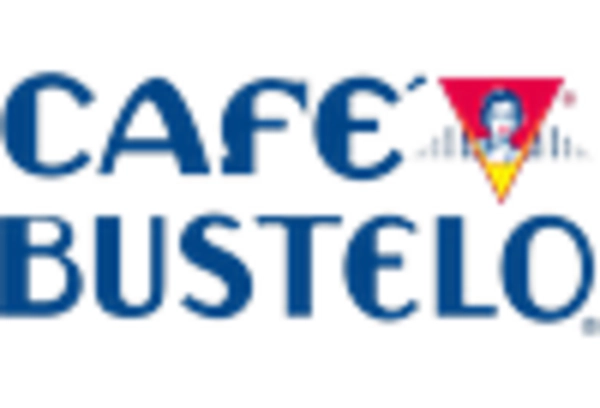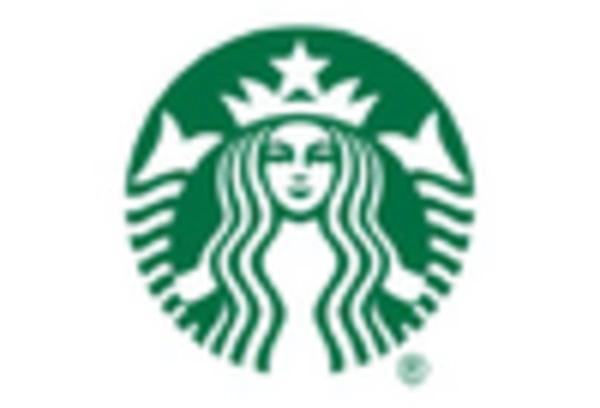Expansion of E-commerce Platforms
The Coffee Concentrates Market is benefiting from the rapid expansion of e-commerce platforms, which have transformed the way consumers purchase coffee products. With the convenience of online shopping, consumers can easily access a wide variety of coffee concentrates from different brands, often at competitive prices. Recent statistics indicate that e-commerce sales in the coffee sector have increased by approximately 20% over the past year. This trend is likely to continue, as more consumers prefer the ease of ordering online and having products delivered directly to their homes. As a result, companies within the Coffee Concentrates Market are increasingly investing in their online presence and digital marketing strategies to capture this growing segment of consumers.
Innovations in Packaging Solutions
Innovations in packaging solutions are playing a crucial role in the Coffee Concentrates Market, as companies seek to enhance product shelf life and consumer convenience. Advanced packaging technologies, such as vacuum-sealed pouches and single-serve pods, are becoming more prevalent, allowing for better preservation of flavor and freshness. Market data suggests that products utilizing innovative packaging are experiencing a growth rate of around 12% annually. This trend not only appeals to consumers looking for convenience but also aligns with sustainability efforts, as many new packaging solutions are designed to be more environmentally friendly. As the Coffee Concentrates Market continues to evolve, the focus on packaging innovation is likely to remain a key driver of growth.
Health Consciousness Among Consumers
In recent years, there has been a marked increase in health consciousness among consumers, which is significantly impacting the Coffee Concentrates Market. Many individuals are opting for coffee concentrates that offer functional benefits, such as added vitamins, antioxidants, and lower sugar content. This shift towards healthier options is reflected in market data, which suggests that products marketed as health-oriented are witnessing a growth rate of around 15% annually. As consumers become more aware of the nutritional aspects of their beverages, the demand for coffee concentrates that align with these preferences is expected to rise. Consequently, manufacturers are likely to innovate and reformulate their products to cater to this health-driven market segment.
Emerging Trends in Coffee Consumption
Emerging trends in coffee consumption are significantly influencing the Coffee Concentrates Market. Younger consumers, particularly millennials and Generation Z, are increasingly embracing coffee as a lifestyle choice, leading to a rise in demand for ready-to-drink coffee concentrates. Recent market analysis indicates that this demographic is driving a growth rate of approximately 18% in the ready-to-drink segment. Additionally, the trend towards cold brew and nitro coffee concentrates is gaining traction, as consumers seek refreshing alternatives to traditional hot coffee. This shift in consumption patterns is prompting manufacturers to diversify their product lines and cater to the evolving preferences of a younger audience, thereby shaping the future landscape of the Coffee Concentrates Market.
Rising Popularity of Specialty Coffee
The Coffee Concentrates Market is experiencing a notable surge in the popularity of specialty coffee. Consumers are increasingly seeking unique flavors and high-quality brews, which has led to a growing demand for coffee concentrates that can deliver these experiences conveniently. According to recent data, the specialty coffee segment has seen a growth rate of approximately 10% annually, indicating a shift in consumer preferences towards premium products. This trend is likely to drive innovation within the Coffee Concentrates Market, as manufacturers strive to create diverse flavor profiles and enhance the overall quality of their offerings. As consumers become more discerning, the emphasis on sourcing high-quality beans and employing artisanal production methods may further influence market dynamics.

















